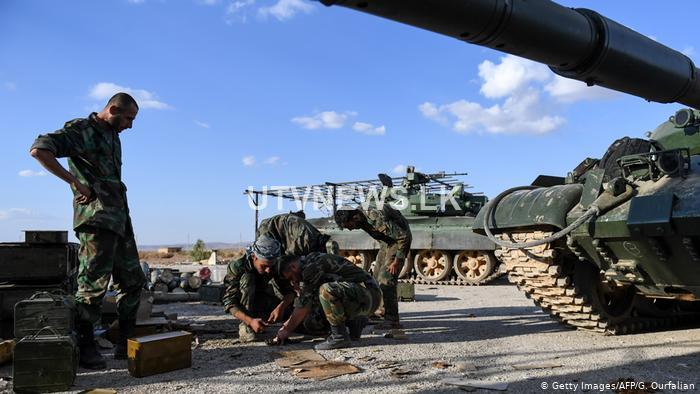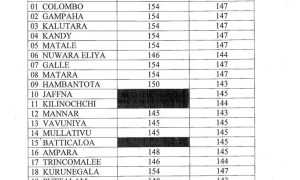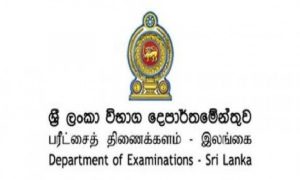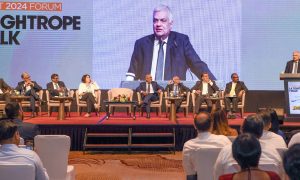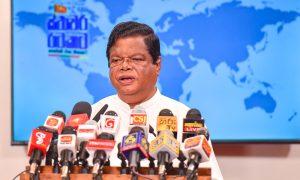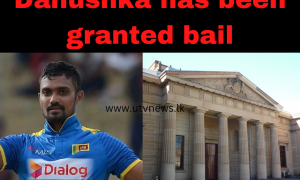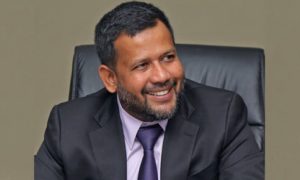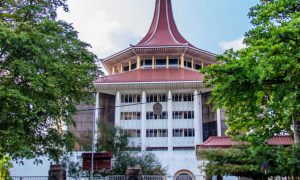(UTV|PARIS, ANKARA) – Foreign ministers from 14 European countries, including France and Germany, demanded on Wednesday that Syrian regime forces and their Russian backers end their offensive in Idlib province and return to the terms of a 2018 cease-fire deal.
Turkey however plans to push regime forces away from its military observation posts in the Idlib region this week, despite continued advances by Damascus’s Russian-backed military.
President Recep Tayyip Erdogan on Wednesday vowed Turkey would not take the “smallest step back” in an escalating standoff with Damascus and Russia over the northern Syrian region of Idlib.
Meanwhile, a meeting between Erdogan and his Russian counterpart, Vladimir Putin, is expected to take place ahead of a possible summit including EU heavyweights Germany and France to find a political solution to the Idlib crisis.
“We will not take a smallest step back in Idlib, we will certainly push the regime outside the borders we designated, and ensure the return of the people to their homes,” Erdogan told ruling party’s lawmakers in parliament in Ankara.
Nearly a million Syrians have been displaced in the past three months by fighting between Turkish-backed rebels and Syrian forces backed by Moscow trying to recapture the last major insurgent-held region in Syria after nine years of war.
‘End offensive’
The 14 ministers said in a column published in French daily newspaper Le Monde: “We call on the Syrian regime and its supporters, especially the Russians, to end this offensive and return to the cease-fire arrangements of autumn 2018,”
“We call on them to immediately end hostilities and to respect their obligations under international humanitarian law, in particular the protection of humanitarian workers and medical personnel, who pay with their lives for their engagement in favor of civilian populations.”
Turkey and Russia agreed in September 2018 to create de-escalation zones in Idlib, but that has since unraveled amid the Syrian regime offensive.
Ankara has sent thousands of troops and truckloads of equipment into the region, in Syria’s northwest corner bordering Turkey, to support the rebels, and Erdogan has vowed to push back Bashar Assad’s forces.
But Assad’s forces made fresh gains in southern Idlib province where they took a number of villages on Wednesday, with more hospitals and schools struck by airstrikes.
“The fight against terrorism cannot, should not, justify the massive violations of international humanitarian law, which we are witnessing every day in northwest Syria,” the ministers said.
“We also call on Russia to continue negotiations with Turkey, in order to achieve de-escalation in Idlib and contribute to a political solution,” they said, calling on Moscow to not block the renewal by the UN Security Council of a mechanism allowing cross-border aid to enter the area.
Erdogan bluntly warned the Syrian regime to “stop its attacks as soon as possible” and to pull back by the end of February.
“The time we have given to those who besieged our observation towers is running out,” Erdogan said.
“We are planning to save those of our observation posts from the besiegers one way or another by the end of this month.”
Erdogan said: “The biggest problem we currently have is that we cannot use the air space” over Idlib which is controlled by Russia. “God willing, we will find a solution soon.” In recent weeks, Damascus backed by Russian airstrikes has pressed a major offensive against the remaining territory held by militants and Turkish-backed rebels in Idlib.
In a statement read on public television, the Syrian army on Wednesday announced it had “regained control” of a dozen of areas in recent days, including Kafranbel in the south of Idlib, a town known to have been among the first to rebel against Damascus. The army vowed to “liberate the territories of the Syrian Arab Republic from terrorism and its supporters.”
Displaced
Idlib hosts more than 3 million people — half of them already displaced by violence elsewhere and the UN has warned against an imminent “bloodbath” amid the contiuing fighting.
Turkish Foreign Minister Mevlut Cavusoglu was quoted as saying on state-run TRT tv, that as a first step, “what President Erdogan and Putin have agreed is to come together at a bilateral format.”
While backing opposite sides, Russia and Turkey have worked to end the conflict but strains have soared in recent weeks over Idlib.
The tensions are seen as the biggest threat to Ankara-Moscow ties since Turkey shot down a Russian warplane over Syria in November 2015.
The Kremlin indicated Tuesday however, that an Erdogan-Putin meeting was not on the cards, also saying that a tripartite summit with another regime ally Iran could be planned instead of a multilateral one with France and Germany.
A Russian delegation was due to hold another round of talks with Turkish officials in Ankara Wednesday. (AP)

